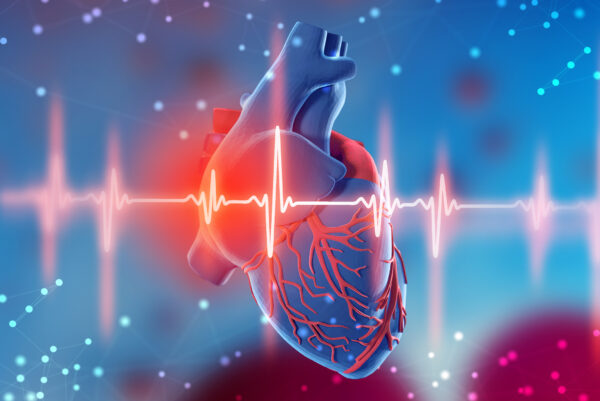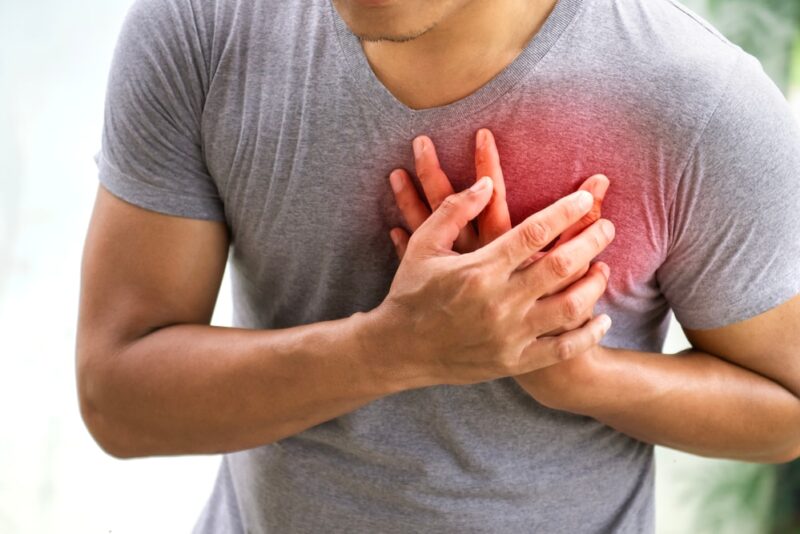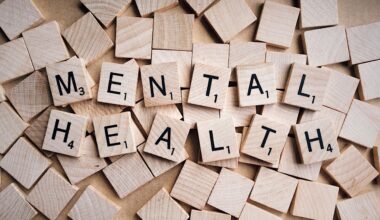Chest pain is one of the most common symptoms of a heart attack or other heart problems. The cause of your chest pain can be different from person to person, but there are some conditions that are more likely than others. Here’s an overview of 17 possible causes:
1. Heart diseases
Heart disease refers to a group of conditions that affect the heart muscle and blood vessels, which can lead to chest pain.
There are many types of heart disease, including:
- Congenital/infantile form – this occurs in babies who were born with a small abnormality in their hearts that makes them more likely to develop problems later on. It’s rare but it’s important for doctors to know about so they can treat it early on.
- Atherosclerosis – this type of hardening occurs when plaque builds up inside one or more arteries (blood vessels). Plaque is made up of fatty substances called cholesterol that build up over time due to high levels of LDL (bad) cholesterol in your body; these clogs up the arteries eventually causing coronary artery bypass surgery which removes part or all of your clogged coronary arteries through an operation known as angioplasty/stent placement procedure followed by drug treatment with aspirin therapy etc…
2. Angina
Angina is a symptom of coronary artery disease, which can be caused by a blockage in the arteries that supply blood to your heart muscle. It may also be related to:
- A spasm (or contraction) of those same arteries
- A heart attack, in which there’s an interruption of blood flow through the heart (a “widening” or “blockage”)
The symptoms of angina include chest pain that occurs when you exercise or do other physical activity; it may feel like pressure or heaviness in your chest, along with nausea and sweating. You may also have difficulty breathing during these episodes.
3. Heart attack (myocardial infarction)
Heart attack is a medical emergency. If you think you are having a heart attack, call 911 immediately. Your symptoms may include chest pain, shortness of breath, nausea and vomiting. If your symptoms are severe or persistent—or if they come back after you have been treated with aspirin or other drugs used to prevent blood clots—call 911 immediately as well.

4. Aortic dissection
Aortic dissection is a tear in the aorta, which carries blood from your heart to all parts of your body. It can be life-threatening if not treated quickly, especially if you have high blood pressure or abnormal cholesterol levels.
Aortic aneurysms (tumors) are common but less serious than other types of dissection; they’re more likely to affect adults than children—though they do occur in both groups. Aneurysms are most often found with age, but they can also develop suddenly after an injury or during pregnancy (when there’s more pressure on the walls).
5. Pulmonary embolism
Pulmonary embolism is a blood clot in the lungs. This can be caused by:
- Deep vein thrombosis, which occurs when blood clots form in your deep veins (the ones that run from legs to arms). These clots are often found after surgery or broken bones.
- Pulmonary infarction, or a total blockage of an artery supplying oxygen-rich blood to the heart muscle. This is usually due to atherosclerosis (hardening of arteries), but may also be caused by infection or cancerous tumors that block flow through these vessels.
6. Pericarditis
Pericarditis is an inflammation of the pericardium, a double-walled sac that surrounds your heart and upper lungs. It can be caused by a virus or infection, but it’s most commonly due to a foreign body that has gotten into your chest cavity (like shingles).
It may also be acute or chronic: Acute pericarditis occurs when there are no signs of infection but you notice severe pain in your chest; chronic pericarditis occurs without symptoms until one day you wake up with pain that lasts for more than 24 hours.
7. Flail chest
A flail chest is a condition where a rib or multiple ribs are broken and displaced from the rest of the rib cage. It can be caused by trauma, like a car accident or getting hit by a baseball bat in your chest. It’s also common among people who smoke because it makes their lungs swell and push against their ribs.
When you have flail chest symptoms, you may feel pain in your left upper arm or shoulder and/or back as if something was squeezing on them tightly — but no matter how hard they try to move around (which would hurt!), nothing happens! This type of pain usually lasts for weeks before going away completely; however it may come back after several months time has passed since its initial occurrence
8. Esophageal spasm
Esophageal spasm, also known as an esophageal contraction, is a type of hypersensitive reflex that causes chest pain and shortness of breath. When the muscles in your esophagus contract suddenly and vigorously, you may feel a tightening sensation in your chest and throat.
Symptoms include:
- Chest pain (usually on one side) that worsens with deep breathing or coughing; this may radiate to arms or shoulders; if it occurs on both sides at once then it’s called a “ribcage syndrome”
- Shortness of breath with exertion; this can be relieved by sitting down for just a few minutes after eating or drinking something carbonated such as cola
9. Pleurisy or pleuritis
Pleurisy is an infection of the lining of your chest wall (pleura) or upper respiratory tract (trachea). It’s often caused by a strep infection and may happen when you don’t take enough antibiotics to keep you from getting sick again because they haven’t worked on all of your symptoms yet.
Pleurisy causes pain in one or both sides of your chest just below where they meet at the breastbone area—the middle part between shoulder blades—and radiating down toward both sides like waves across a beach on a windy day; it’s usually worse after lying down than when standing up straight because gravity pulls harder on those spots where there are no muscles holding things up!
10. Pneumothorax (collapsed lung)
A pneumothorax is when air gets into the space between the lungs and the chest wall. It can be caused by blunt injuries, medical procedures, or medical conditions.
If you have chest pain and are worried about pneumothorax, see a doctor immediately!
11. Acid reflux/Gastroesophageal reflux disease (GERD)
If you experience these symptoms, it’s most likely acid reflux or gastroesophageal reflux disease (GERD). Acid reflux is caused by a sphincter muscle that relaxes too much. The esophagus can become inflamed if this happens and cause chest pain, heartburn and regurgitation.
These symptoms are caused by either:
- Eating too fast or drinking alcohol before meals
- Spicy foods
- Smoking cigarettes
12. Anxiety or panic attack
Anxiety is a feeling of fear or unease about something. It can be triggered by a stressful situation, like missing an important deadline at work, but it’s not always clear why you feel this way.
Panic attacks are sudden feelings of panic that often occur when you’re going through some kind of emotional upheaval—like getting out of bed in the morning or arguing with your partner in front of friends for the first time ever!
If you experience any physical symptoms (such as sweating), seek immediate medical attention if possible; otherwise see your GP for further advice on what might be causing your chest pain and how best to treat it
13. Chest wall pain (costochondritis)
Costochondritis is an inflammation of the cartilage that connects the ribs to the breastbone. It’s usually caused by a pinched nerve, but can also be caused by trauma or surgery. Symptoms include chest pain, which may be sharp or dull and tenderness in your chest wall. Costochondritis is more common in women than men; it affects about 20 percent of women over age 50 and 10 percent between ages 40 and 60.
14. Diabetic ketoacidosis (DKA)
If you have diabetes, your blood sugar levels can get too high. This is called hyperglycemia, and it’s a serious condition that can lead to coma and death.
To prevent this from happening:
- Keep track of your blood sugar levels regularly by checking them with a meter or at home with a glucometer (a small handheld device). Don’t skip any testing unless you’re told to do so by your doctor or nurse practitioner.
15. Hyperventilation syndrome associated with anxiety or panic disorder
Chest pain is a common symptom of heart disease, but it can also be caused by breathing too fast or shallowly.
Breathing too fast (hyperventilation) or shallowly can trigger chest pain in people who have anxiety or panic disorder. The condition may not go away on its own—but there are ways to treat it with breathing exercises and relaxation techniques that help control your anxiety levels.
16. Pulmonary hypertension
Pulmonary hypertension is a condition where the blood vessels in your lungs become narrow, making it hard for blood to flow through. The narrowing of these vessels can be caused by high blood pressure (hypertension) or another condition, such as heart disease or diabetes.
Pulmonary hypertension can cause shortness of breath, fatigue and coughing up mucus. It may not cause any symptoms until after you’ve had it for some time—but if you experience chest pain that doesn’t go away when resting on your back or lying down flat on your right side then it’s likely pulmonary hypertension causing your symptoms!
17. Chest wall strain
This can be caused by lifting something heavy, like groceries or bags. It’s also common if you have poor posture.
Conclusion
If you experience chest pain, it’s important to know what caused it and how to prevent it from happening again. Luckily, there are a lot of ways to identify whether or not your chest pain is serious enough for medical attention. The most important thing is to act fast when something seems wrong with your heart (or any other part of your body), so don’t hesitate!






